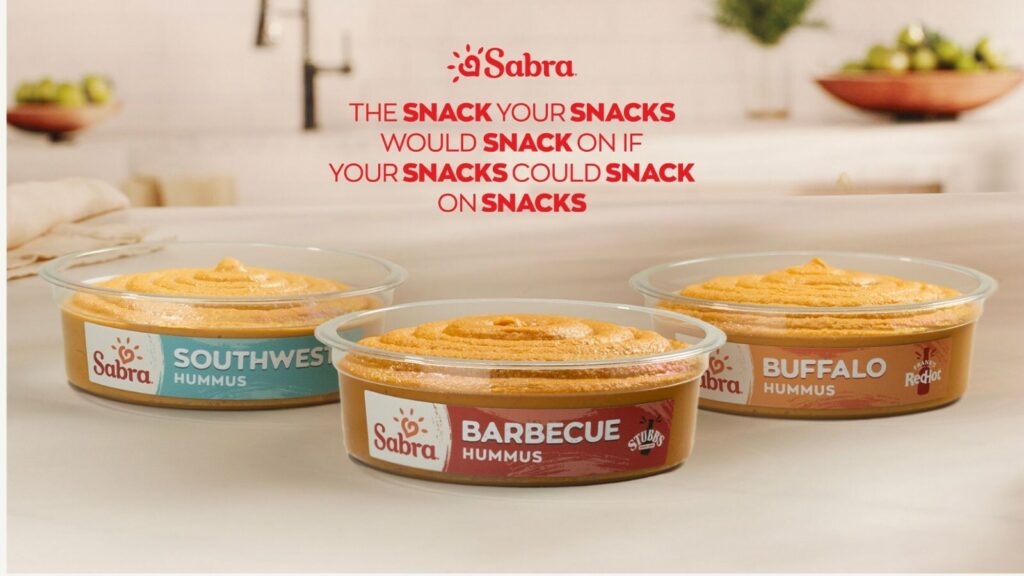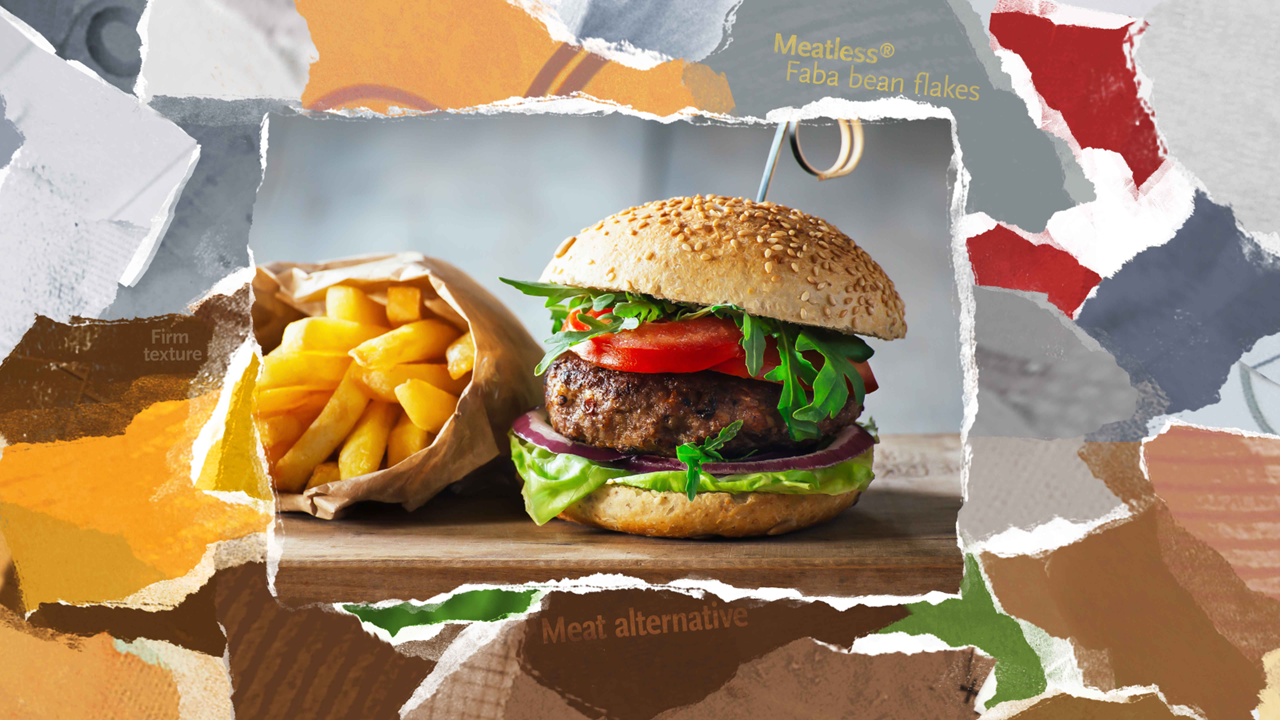Sabra hummus recently unveiled three new flavors that unite America’s favorite velvety and irresistible hummus with some of the nation’s boldest and most beloved flavor brands. These innovative hummus varieties are infused with a combination of heat, smoke, spice and Texas-style barbeque.
The new flavors include:
- Sabra Buffalo Hummus made with Frank’s RedHot: Sabra collaborated with the renowned Frank’s RedHot to create a Buffalo Hummus, a blend of creamy indulgence and scorching flavors with tang and spice;
- Sabra BBQ Hummus inspired by Stubb’s: Sabra partnered up with the acclaimed BBQ sauce brand Stubb’s for a BBQ Hummus that captivates the rich, smoky flavors of Texas-style barbecue; and
- Sabra Southwest Hummus: Sabra’s new vibrant and zesty Southwest Hummus captures the essence of Tex-Mex cuisine, marrying the velvety texture of hummus with the bold flavors of the Southwest.
“These outstanding dips are for the big flavor fans out there,” said Sabra’s global chief research, development and sustainability officer Olugbenga Diyaolu, in a press release. “As we reach for snacks more often, we want more from them… more intense flavor, more satisfying textures, more fulfilling options.”
Related: 3 New Additions to the Plant-Based Cream Cheese Market
As part of the brand’s “The Snack Your Snacks Would Snack on If Snacks Could Snack on Snacks” marketing campaign, Sabra released two YouTube Shorts that capture the appeal of Sabra Buffalo Hummus made with Frank’s RedHot and Sabra BBQ Hummus inspired by Stubb’s.
How Sabra Hummus Conquered the US Dip Market
Sabra was founded by Zohar Norman and Yehuda Pearl under the name Sabra-Blue & White Foods in 1986, a time when hummus remained tucked within the confines of niche markets, known only to a select few. While it enjoyed pockets of popularity among certain customer segments, hummus was largely an enigma to the broader American market.
Sabra’s breakthrough came in 2004, launching its expansion with a Costco Roadshow that laid the foundation for its nationwide expansion. Armed with samples that captivated consumers’ palates, the brand set out on a mission to increase awareness and boost demand. Many credit Sabra hummus for single-handedly bringing the beloved Middle Eastern delight of hummus to the forefront of American palates.
Fast-forward to the present and Sabra hummus is now co-owned by PepsiCo and Strauss. This strategic co-ownership helped to cultivate the company’s undeniable market dominance, boasting a staggering 60 percent share in the burgeoning US hummus market in 2016. This meteoric rise translated into a remarkable half-billion-dollar sales figure.
The brand’s diverse portfolio of products found a loyal home within grocery stores and food vendors across the nation. Sabra’s influence was so potent that it ignited the creation of dedicated hummus sections within stores where none existed a mere half-decade ago; however, it hasn’t always been smooth sailing for the hummus brand.
Recalls and Shutdowns
In April 2015, Sabra initiated a recall of 30,000 cases of its Classic Hummus after a tub of hummus in Michigan tested positive for Listeria. Then, in November 2016, Sabra issued a voluntary recall of several hummus varieties across the US prompted by the identification of Listeria at one of the brand’s manufacturing facilities.
In a more recent occurrence in March 2021, Sabra found itself in another cautious predicament. Approximately 2,100 cases of the 10-ounce Classic Hummus were recalled following a routine inspection conducted by the US Food and Drug Administration (FDA) at the company’s Virginia plant. The cause for concern this time was the possibility of Salmonella contamination.
Responding to the FDA’s evaluation, Sabra temporarily closed down the Virginia plant that year. The hiatus prompted an extensive deep cleaning, facility upgrades and the creation of new employee training protocols. But the temporary shutdown bore a significant impact on the company, necessitating a complete halt in the production of Sabra hummus products for several weeks.
The resulting shortage of Sabra hummus triggered a setback in the brand’s once sizable foothold within the US hummus market. Consequently, Sabra experienced a decline in market share by 16 percent, shifting from 62 percent to 46 percent over the previous year. Sales encountered a notable drop of nearly a third, according to the Strauss Group in May 2022.
Despite these challenges, Sabra has persisted. What started as a niche product has evolved into a well-known and beloved household name, a symbol of the brand’s dedication to introducing a timeless tradition to American consumers.












Join or login to leave a comment
JOIN LOGIN